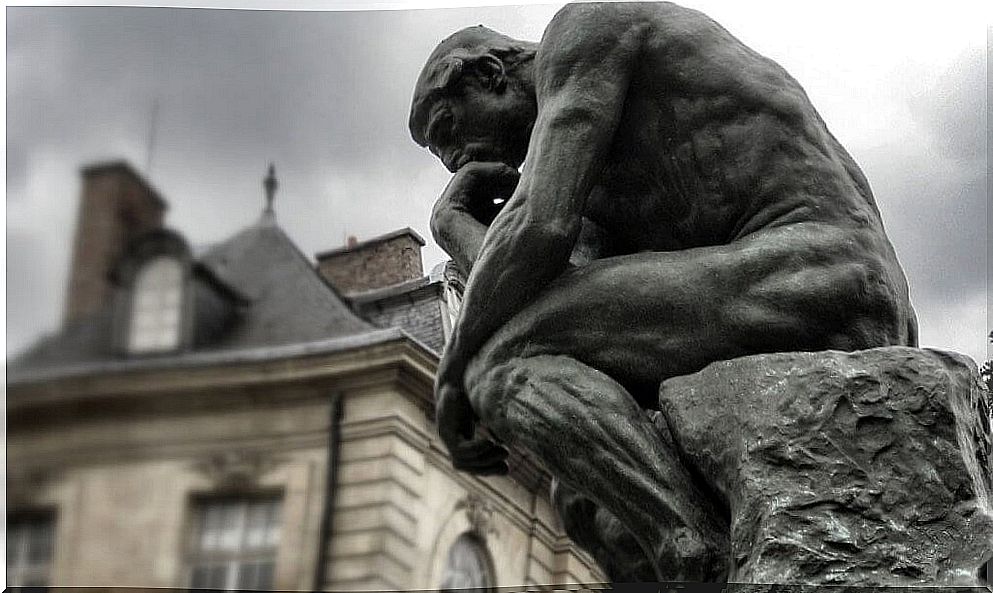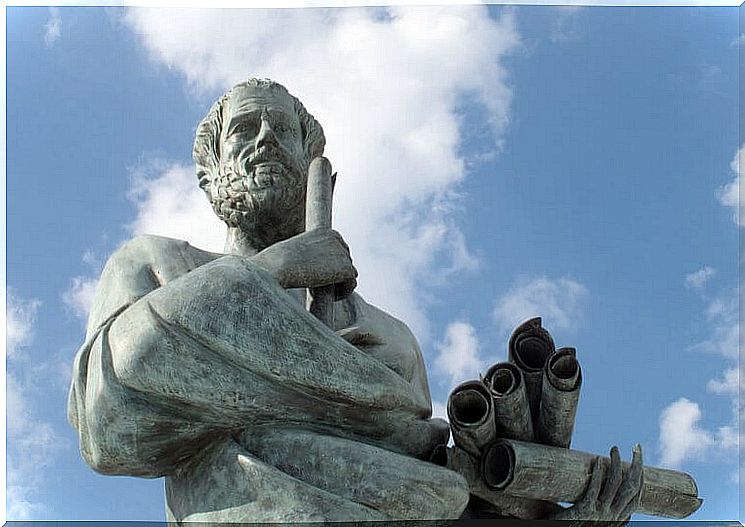What Is The Relationship Between Philosophy And Psychology?

Philosophy and psychology are two areas of study with a common place in history. Psychology emerged from philosophy. It arose with the aim of including the empirical method when facing the questions that are raised by philosophy. Therefore, philosophy added to psychology several themes of study, such as sensation, perception, intelligence and memory.
On the other hand, the solutions offered by one area or another are different. Although they share many subjects of study, they also have different points of view. Even using the same theories, philosophy and psychology often do not agree in their conclusions. At the same time, these lines of separation mean that, from one area or another, its professionals can be considered enemies of each other.

Philosophy and Psychology
The word psychology comes from the Greek words “psyche” and “logos”, which mean, respectively, “soul” and “study”. Therefore, psychology means the study of the soul. So, in a simple way, we could say that psychology is the science in charge of the study of the human mind and behavior.
It is an area of study that tries to explain what goes on in our heads and how these events affect the way we act, taking into account the type of stimulation we receive. In this sense, psychology also seeks to know how people receive and interpret the information they receive through their senses.
On the other hand, the term philosophy comes from the Greek words “philo” and “sofia”, which means “love of wisdom”. Philosophy aims to solve problems that occur in reality.
It focuses on the study of a variety of perhaps more transcendent problems, such as existence, knowledge, truth, morals, beauty, mind and language. The latter generally conducts its research in a non-empirical way, whether through conceptual analysis, mental experiences, speculation or other methods.

Similarities between philosophy and psychology
Psychology depends on philosophy for several reasons. Philosophy lends to psychology an overview of the human being, which is the basis of a good deal of psychological theories. The inverse relationship also happens. Philosophy sometimes makes use of the scientific methodology of psychology to achieve its goals.
Another similarity is that philosophy has added to psychology some of the themes it studies: sensation, perception, intelligence, memory and will. As already mentioned, both share study themes, despite the way of studying and the answers obtained are different. On the other hand, philosophy enters psychology in two ways: through hypotheses concerning the mind and adequate forms of study, and through general principles latent to scientific research.
Differences between philosophy and psychology
Although both stories examine people’s behavior, they also have discrepancies. Some of the points that differentiate them are found in the methodology used, its objectives and in the consideration of morals.
Regarding method, philosophy works with conceptual categories and the relationships that take place between them. Therefore, it is open to any method. Psychology, on the other hand, relies on empirical and statistical research, making use of both quantitative and qualitative research. It focuses on carrying out experiments and on the empirical contrast of the hypothesis as a way to understand our behavior and validate the instruments, such as therapies, that it makes available to us.

With respect to goals, philosophy has more intellectual goals, while psychology focuses more on therapy and intervention. Philosophy creates philosophical systems or categories that serve to explain reality. Psychology, rather than studying the general view like philosophy, seeks to isolate variables in human behavior.
So their theories try to take our biology – for example, with the study of our brain chemistry – and consider individual differences – no one exactly imitates another person’s behavior under the same circumstances. Thus, psychology almost never approaches the search for a reality totally alien to people’s existence, something that, historically, can happen in some philosophical proposals.

Another big difference that occurs between them is in the conceptualization of morality. Philosophy seeks to explain everything, which includes studying the right ways to behave. In philosophy there are several works regarding what is right and what is wrong. For its part, psychology does not enter into this debate. Although in psychology scales of ethics and morals have already been proposed, its objective is not to study what is moral or not, but to understand that there are different morals.
Philosophy and psychology study human beings and their behavior. Both have similarities and differences, even coming to find different interpretations for the same acts. Thus, the method that each one uses will condition the answers they offer us. Even so, both share, on some occasions, theories and results that the other science integrates into its own knowledge repertoire.









